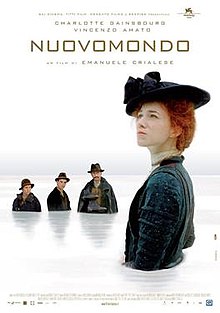
I'm Not Scared is a 2003 Italian crime mystery thriller film directed by Gabriele Salvatores. Francesa Marciano and Niccolò Ammaniti wrote the script, basing it on Ammaniti's successful 2001 Italian novel with the same name. The story is set during Italy's "Years of Lead", a time in the 1970s riddled with terrorism and kidnapping, and tells the story of a nine-year-old boy who discovers a terrible crime committed by the entire population of his southern Italian town. Although selected as the Italian entry for the Best Foreign Language Film at the 76th Academy Awards, it was not nominated.

Behind the Sun is a 2001 social drama film directed by Walter Salles, produced by Arthur Cohn, and starring Rodrigo Santoro. Its original Portuguese title means Shattered April, and it is based on the 1978 novel Broken April written by the Albanian writer Ismail Kadare, about the honor culture in the North of Albania.
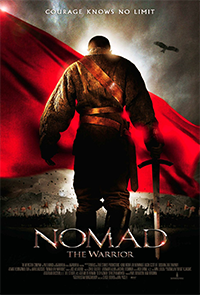
Nomad: The Warrior is a 2005 Kazakh historical epic film written and co-produced by Rustam Ibragimbekov and directed by Sergei Bodrov and Ivan Passer.
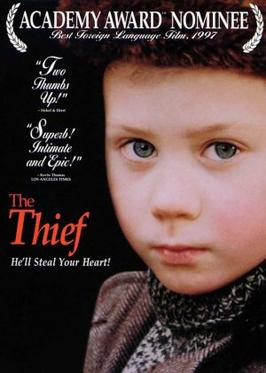
The Thief is a 1997 Russian drama film written and directed by Pavel Chukhray. It was nominated for the Academy Award for Best Foreign Language Film and won the Nika Award for Best Picture and Best Directing. Also winner of the International Youth Jury's prize, the President of the Italian Senate's Gold Medal, and the UNICEF Award at the 1997 Venice Film Festival.

The Unknown Woman is a 2006 Italian psychological thriller mystery film, directed by Giuseppe Tornatore that depicts a woman alone in a foreign country, haunted by a horrible past. Although selected as the Italian entry for the Best Foreign Language Film at the 80th Academy Awards and make the shortlist, it was not final nomination.
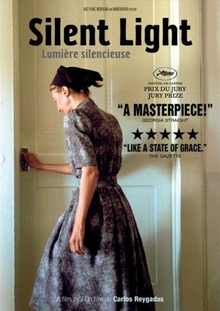
Silent Light is a 2007 film written and directed by Carlos Reygadas. Filmed in a Mennonite colony close to Cuauhtémoc, Chihuahua State, Northern Mexico, Silent Light tells the story of a Mennonite married man who falls in love with another woman, threatening his place in the conservative community. The dialogue is in Plautdietsch, the Low German dialect of the Mennonites. The film was selected as the Mexican entry for the Best Foreign Language Oscar at the 80th Academy Awards, but it did not make the shortlist. The film was nominated for Best Foreign Film at the 24th Independent Spirit Awards. It gained nine nominations, including all major categories, in the Ariel Awards, the Mexican national awards.

Gomorrah is a 2008 Italian crime drama film directed by Matteo Garrone, based on the non-fiction book of the same name by Roberto Saviano, who also collaborated in the screenplay. It deals with the Casalesi clan, a crime syndicate within the Camorra — a traditional criminal organization based in Naples and Caserta, in the southern Italian region of Campania.
Tyulpan is a 2008 Kazakh drama film. It was directed by Sergey Dvortsevoy and distributed by Zeitgeist Films. Tulpan was Kazakhstan's 2009 Academy Awards official submission to Foreign Language Film category, but it didn't make the final shortlist. It won the award for Best Film at the 2nd Asia Pacific Screen Awards.

Baarìa is a 2009 Italian historical drama film directed by Giuseppe Tornatore. It was the opening film of the 66th Venice International Film Festival in September 2009. Although selected as the Italian entry for the Best Foreign Language Film at the 82nd Academy Awards, it was not nominated.
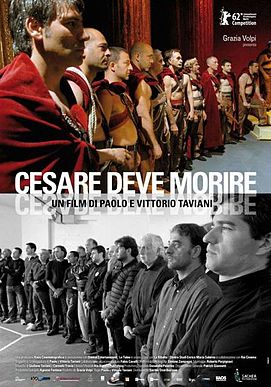
Caesar Must Die is a 2012 Italian drama film directed by Paolo and Vittorio Taviani. The film competed at the 62nd Berlin International Film Festival where it won the Golden Bear. The film is set in Rebibbia Prison, and follows convicts in their rehearsals ahead of a prison performance of Julius Caesar.

Child's Pose is a 2013 Romanian drama film directed by Călin Peter Netzer. The film premiered in competition at the 63rd Berlin International Film Festival where it won the Golden Bear. It was screened in the Contemporary World Cinema section at the 2013 Toronto International Film Festival. Luminița Gheorghiu was nominated as the Best Actress at the 26th European Film Awards and the film won the Telia Film Award at the Stockholm International Film Festival 2013. The film was selected as the Romanian entry for the Best Foreign Language Film at the 86th Academy Awards, but it was not nominated.

Borgman is a 2013 Dutch psychological thriller drama film directed by Alex van Warmerdam. It was nominated for the Palme d'Or at the 2013 Cannes Film Festival. It was screened in the Vanguard section at the 2013 Toronto International Film Festival. The film was selected as the Dutch entry for the Best Foreign Language Film at the 86th Academy Awards, but it was not nominated.

Xenia is a 2014 drama film directed by Panos H. Koutras. It was selected to compete in the Un Certain Regard section at the 2014 Cannes Film Festival, and in the Contemporary World Cinema section at the 2014 Toronto International Film Festival. It was the Greek entry for the Best Foreign Language Film award at the 88th Academy Awards, but it was not nominated. Xenia has won six awards from the Hellenic Film Academy. At the award ceremony, Koutras refused to receive two of them until the law on granting Greek citizenship to second-generation immigrants is changed.
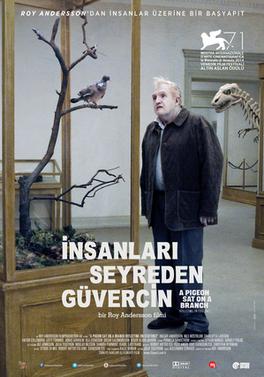
A Pigeon Sat on a Branch Reflecting on Existence is a 2014 internationally co-produced black comedy-drama film written and directed by Roy Andersson. It is the third installment in his "Living" trilogy, following Songs from the Second Floor (2000) and You, the Living (2007). It premiered at the 71st Venice International Film Festival where it was awarded the Golden Lion for Best Film. It was selected as the Swedish entry for the Best Foreign Language Film at the 88th Academy Awards but it was not nominated. It was released in Sweden on 14 November 2014, by TriArt Film.

Fire at Sea is a 2016 Italian documentary film directed by Gianfranco Rosi. It won the Golden Bear at the 66th Berlin International Film Festival. The film was nominated for the Academy Award for Best Documentary Feature at the 89th Academy Awards. It was also selected as the Italian entry for the Best Foreign Language Film at the awards but it was not nominated in that category.
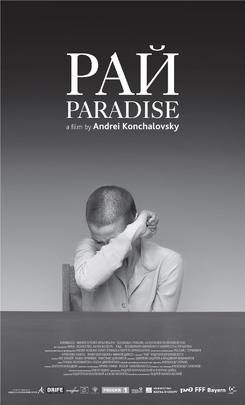
Paradise is a 2016 Russian drama film produced and directed by Andrei Konchalovsky. It was selected to compete for the Golden Lion at the 73rd Venice International Film Festival. At Venice Konchalovsky won the Silver Lion for Best Director. It was selected as the Russian entry for the Best Foreign Language Film at the 89th Academy Awards. In December 2016, it made the shortlist of nine films to be considered for a nomination at the 89th Academy Awards.

The Traitor is a 2019 internationally co-produced biographical crime drama film co-written and directed by Marco Bellocchio, about the life of Tommaso Buscetta, the first Sicilian Mafia boss who was treated by some as pentito. Pierfrancesco Favino stars as Buscetta, alongside Maria Fernanda Cândido, Fabrizio Ferracane, Fausto Russo Alesi and Luigi Lo Cascio.
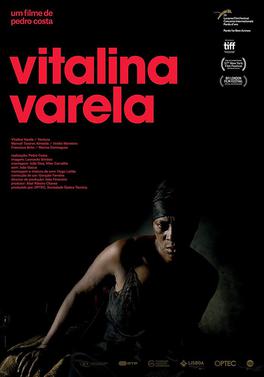
Vitalina Varela is a 2019 Portuguese drama directed by acclaimed director Pedro Costa. It won the Golden Leopard and Best Actress Award at the 2019 Locarno Film Festival. The film follows Vitalina Varela, a character who previously appeared in Pedro Costa's Horse Money.

Unclenching the Fists is a 2021 Ossetian-language Russian drama film directed by Kira Kovalenko. In July 2021, the film won the Un Certain Regard award at the 2021 Cannes Film Festival. It was selected as the Russian entry for the Best International Feature Film at the 94th Academy Awards, but it was not nominated.

Nostalgia is a 2022 Italian-French drama film co-written and directed by Mario Martone, based on a 2016 novel by Ermanno Rea.
